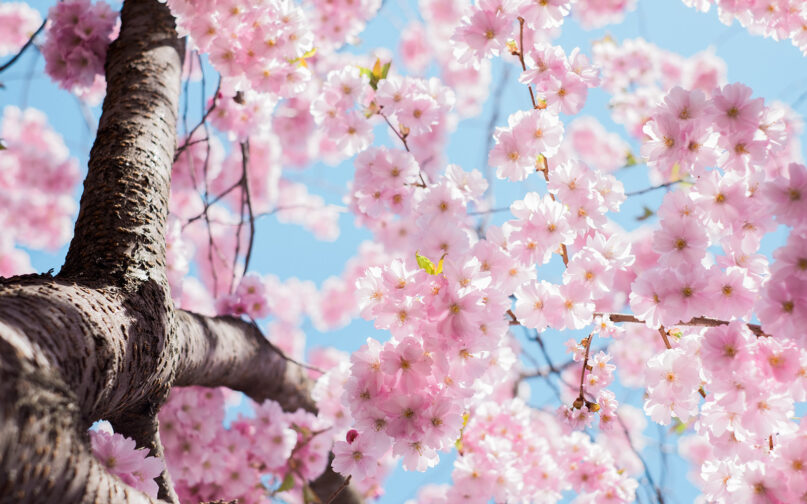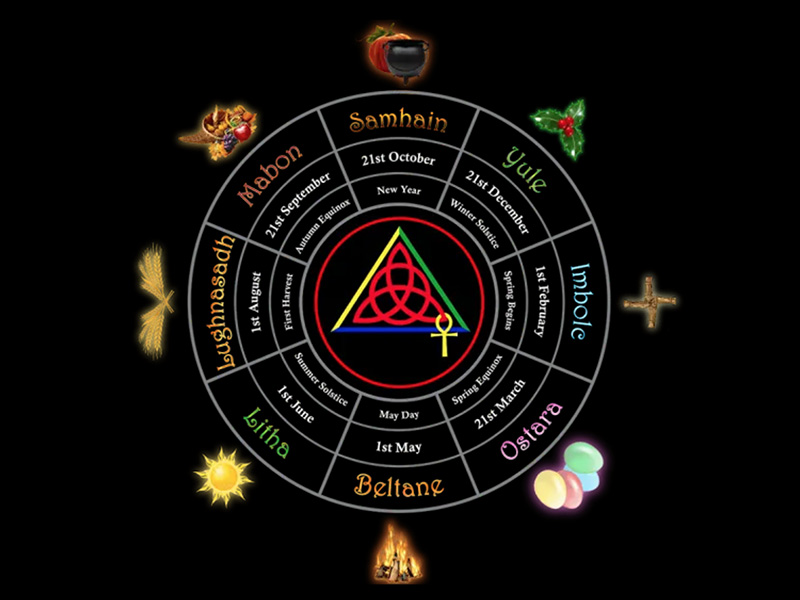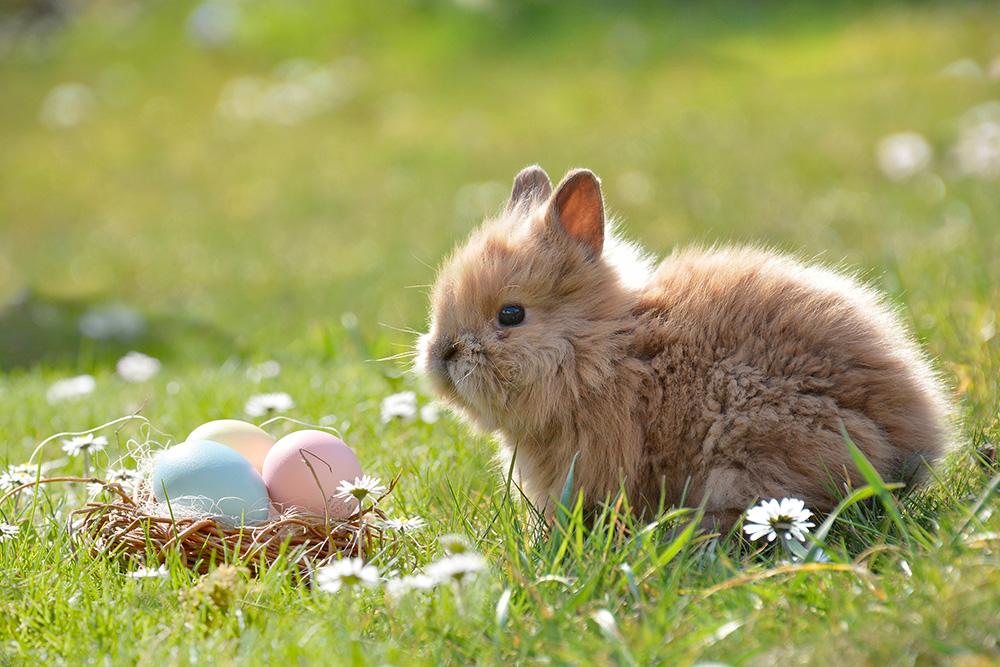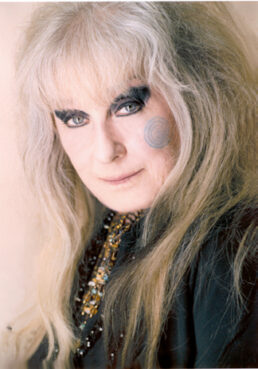End-of-pandemic hopes rise, just in time for pagan holiday Osta
Buzz on social media is forecasting a more robust celebration this year for Ostara, the pagan holiday adapted as Easter by Christian

Photo by Arno Smit/Unsplash/Creative Commons
March 19, 2021
By
(RNS) — For many of Laurie Cabot’s neighbors in Salem, Massachusetts, the vernal equinox, the first day of spring, is a sign of hope that warmer weather will soon bring relief from a long pandemic winter spent mostly apart. For Cabot, the official witch of Salem, the day known in pagan communities as the festival of Ostara will have a more profound meaning.
Cabot is one of the trailblazers who brought the practice of witchcraft “out of the broom closet” nearly 50 years ago, in part by publishing several books, including, “Celebrate the Earth: A Year of Holidays in the Pagan Tradition,” that demystified earth-based practices.
As the founder in 2010 of the Cabot Kent Hermetic Temple — the “first federally recognized Temple of Witchcraft in the history of Salem, Massachusetts,” according to its website, Cabot has also presided over decades of Ostara rituals. But this year’s festivities will be different.
RELATED: Natural by nature, pagans expect some digital rituals to survive the pandemic

The Wheel of the Year, with eight sabbats. Image via the Cabot Kent Hermetic Temple
Ostara is one of eight sabbats, or holidays, in the Wheel of the Year, the pagan spiritual calendar. It is a time of balance — with equal hours of light and dark — and renewal. As vaccination numbers climb and pandemic restrictions are eased, this year’s celebrations will look forward to a collective re-emergence from lockdowns and quarantines. The suffocating nature of too-close quarters, loneliness and days spent staring out of windows are coming to an end.
“Ostara is a time to spring into action and sow the seeds for the rewards of the months to come,” Cabot said. “The world can see the relevance as we step forward into rebirth and a reinvention of what was. The balance comes in stepping forward with compassion, kindness, and bringing forth all of the other aspects of consciousness that give us strength and bring us closer together.”
Chas Clifton, author of “Her Hidden Children: The Rise of Wicca and Paganism in America” and a pagan practitioner for more than 40 years, expects this year’s Ostara to be celebrated with more feeling. “Largely through pagan social media, I have seen indications that this year’s Ostara will carry some extra power,” said Clifton, who is also editor of The Pomegranate: The International Journal of Pagan Studies. “Emergence from what has felt like a year of shadow life, combined with the fact that Ostara falls on a weekend this year, may make for a more robust celebration of this normally low-key festival.”
Although Christians adapted several Easter symbols from Ostara — such as bunnies and decorated eggs — it is normally one of the lesser-known pagan holidays.

Image by Rebekka D/Pixalbay/Creative Commons
“The name is a variation of “Eostre,” Clifton explained, “which, according to the English monastic chronicler Bede, was the name of a Germanic goddess who was celebrated by the pagan Anglo-Saxon people in the spring during ‘Easturmonath’ and associated with springtime and the dawn.”
Historians think that Bede may have mistaken a Germanic dawn goddess related to the Greek “Eos” for a seasonal goddess, noted Clifton. He explained that while other Christian cultures took the name for Easter from the Hebrew “Pesach,” or Passover, Germanic and English cultures employed a form of Easter.
Ostara rituals differ greatly among practitioners. While some adherents prefer solitary activities like meditation and springtime planting, others choose to celebrate in larger groups or covens.
The Cabot Kent Hermetic Temple is celebrating its own cyclical rebirth of a sort. Having lost access to the venue where its seasonal rituals had been held in the past few years, the temple is returning to the historic Hawthorne Hotel in downtown Salem (where a memorable episode of the ’60s sitcom “Betwitched” was filmed) for its Ostara celebration. The hotel is where Laurie Cabot taught some of her original classes in the 1970s.
“The few staff members who have remained at the Hawthorne all these years, as well as some new wonderful people, accepted us with open arms,” she said. “Out of something dark came something uplifting and wonderful.”

Laurie Cabot. Courtesy photo
The ritual, which will take place at the hotel on Saturday (March 20), will be streamed on Facebook Live. Penny Cabot, reverend and green minister high priestess of the temple, said the ritual will honor the goddess Rhiannon, a Welsh goddess of sovereignty, transformation and fertility, and her son, Pryderi.
A lifelong practicing witch, Penny believes that all people can derive meaning from Ostara’s traditions. “There is much that we can do, witch or non-witch, to share in sending out positive energy into the world on Ostara,” she said.
Central to all pagan practice is a deep reverence for nature. It is from the natural energy of the cosmos — the moon and sun, the four elements — that practitioners draw power and spiritual nourishment. On Ostara, that power is found through honoring the rites of spring.
Many Ostara rituals, accordingly, involve seeds and flowers. Penny Cabot suggested gathering fresh flowers, faerie cakes (or muffins), dried cranberries (to represent winter), wildflower seeds and faerie wine (a mixture of milk, cinnamon and honey).
RELATED: In lockdown, our longing for the world could be the antidote to our spiritual anorexia
“Step into your comfortable place, either outdoors or in the sunshine,” she instructed. “Bring all of your items and place them in front of you on a table or on the ground. Raise your right hand to the sky and walk, counterclockwise, in a circular motion. Say these words: ‘I bring harmony to this place.’”
After dividing the offerings into four parts, she pours four bits of faerie milk onto the ground. (If indoors, she recommends putting the parts in four small cups.) She then says, “I bring prosperity and abundance into my world. I send balance and compassion into the universe for the good of all. So it is done.”
Clifton pointed to a similar ritual from the Druid tradition composed by pagan author and priest John Beckett, which “begins with offerings of bread and water to one’s ‘ancestors of blood and spirit,’ to the land spirits, and to the Celtic mother goddess Danu.”
At the heart of the ritual is the planting of seeds. The petitioner pledges to “join in your great work creating and nurturing life and love.”
No comments:
Post a Comment